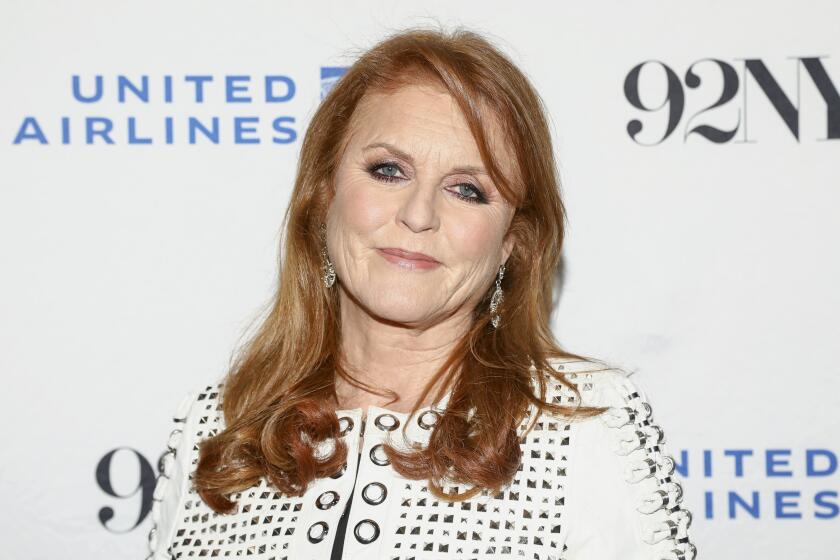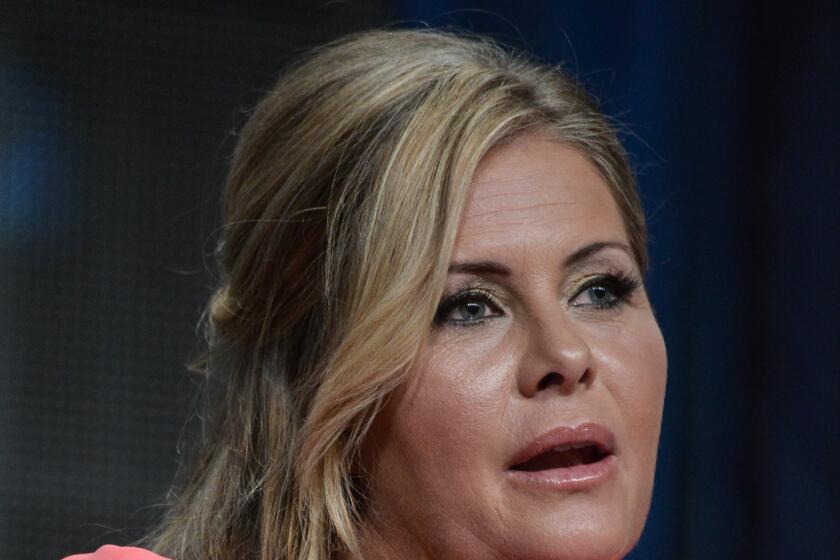The U.S. twice denied a visa application for a potential lifesaving donor. Then the cancer patient got a late-night text
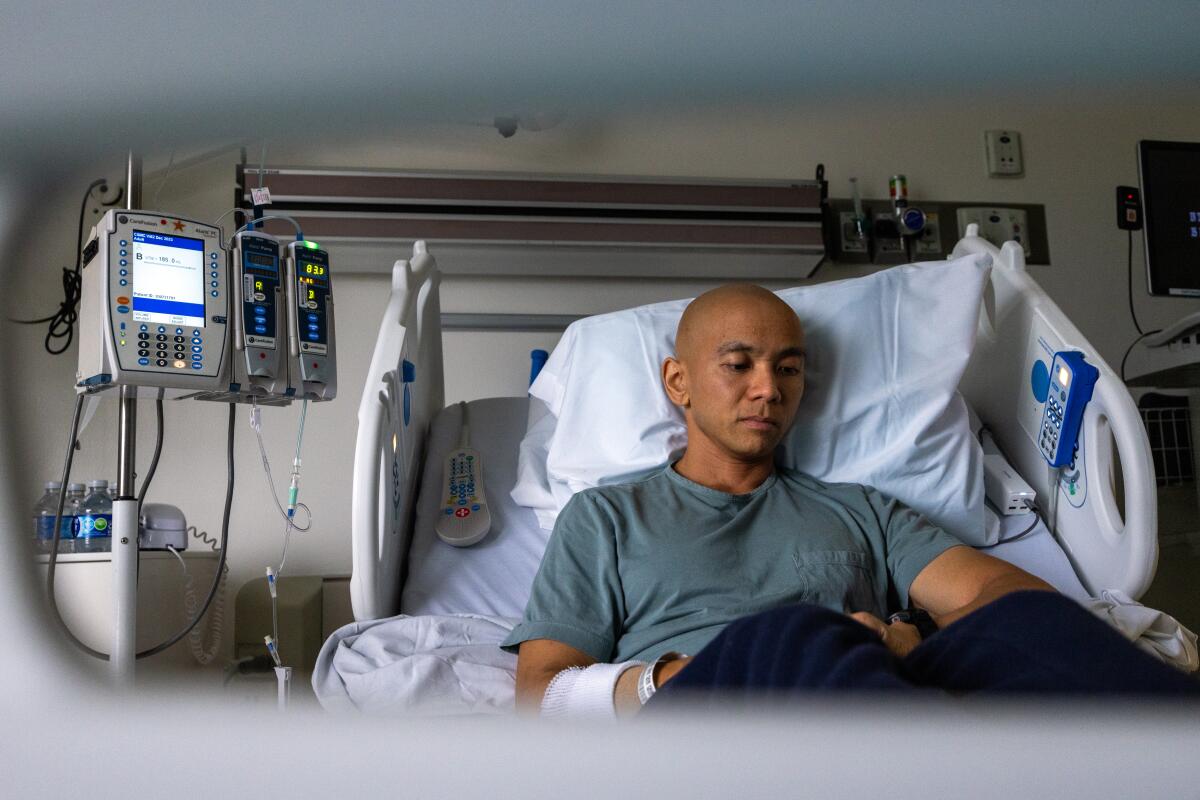
- Share via
Arthur Yu was on edge over an interview taking place more than 7,200 miles away from his home in Los Angeles.
The outcome could mean the difference between life and death. His own.
Then he got a text message Sunday evening with a photo that changed the trajectory of his life.
Yu was diagnosed with leukemia in March, and doctors said his best chance to beat it would be a stem cell transplant. The only suitable donor Yu could find was his cousin Noel Talania, who lives in the Philippines, but was twice denied a visa by the U.S. government despite the extraordinary medical situation. For months, Yu bounced between chemotherapy and recovery while his family and friends tried their best to get Talania through the visa application process.
The Times profiled Yu’s situation Jan. 18 after he and his wife, Alice Yu, shared his story on social media and with multiple news outlets. Talania’s application also received support from Sen. Alex Padilla (D-Calif.) who asked to expedite the process.
Talania was set for another interview at the U.S. Embassy in Manila on Monday, his third interview in a little more than 40 days. Yu didn’t know what to expect. The first two denials felt painful and forced him to reorient how he spent time with his family. Then Talania sent a text that he was approved. Yu didn’t know what to think until Talania sent a photo of a freshly printed visa that would permit him to enter the U.S., enabling him to donate stem cells that could save his cousin’s life.
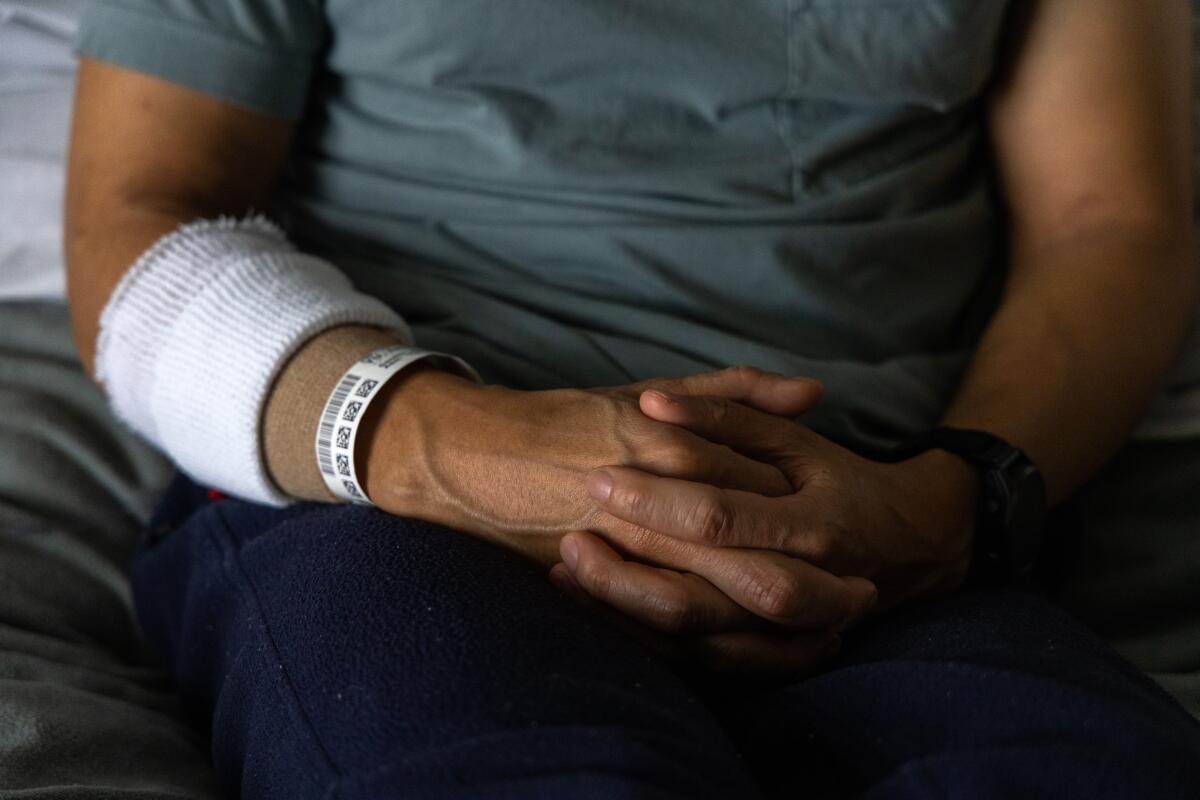
“That was the pure sign,” said Yu, who is recovering from his most recent round of chemotherapy. “I wasn’t sure if he was told something that might be a broken promise later or if he misunderstood. But when I saw that picture of the visa, that’s when I knew.”
Yu, a 41-year-old marathon runner and media strategist, was diagnosed with acute myeloid leukemia in March, just four months after his wife gave birth to their son, Abel. He chalked up his general exhaustion to being a new father, but he was aware that something was off with his heart rate after feeling nearly out of breath from walking from the driveway to his front door. The leukemia is the result of a genetic mutation, said his physician, Dr. Ron Paquette at Cedars-Sinai Medical Center, and not hereditary.
Yu described it as “basically just a random mutation, an unlucky lottery.”
But the journey and outcome are unique, said immigration attorney Sameen Ahmadnia, who worked with Yu pro bono on his case.
The U.S. State Department did not disclose to Talania or Yu why there was a sudden change of heart for his visa application. Ahmadnia said it’s not typical for some form of explanation to be given as part of the denial or approval.
Sarah Ferguson, Duchess of York, said has been diagnosed with malignant melanoma, a form of skin cancer. She was diagnosed with breast cancer in June.
After the U.S. government denied Talania’s second visa application, Yu filed for humanitarian parole on behalf of his cousin. That process allows foreign nationals to enter the U.S. on a temporary basis due to an ongoing conflict in their home country. Most recently it was used to allow Ukrainians fleeing the Russian invasion of their country into the U.S. But the process can take up to two years to complete, Ahmadnia said.
Talania’s visa was approved in a few days.
Nicole Eggert, known for roles on ‘Charles in Charge’ and ‘Baywatch,’ has been diagnosed with a rare form of breast cancer. She got the news over the holidays.
“It was approved, but in a very extraordinary way,” Ahmadnia said. “Arthur is a highly organized and intelligent person, which is why he was able to garner the public’s interest and that of his representatives and push this case through. This is not the case for many people who are similarly situated.”
Typically, U.S. Citizenship and Immigration Services approves an expedited request and then makes a decision on the humanitarian parole application. But Yu’s application appears to have been sent directly to the U.S. Consulate and Talania was approved for a temporary visitor visa. The State Department said it does not discuss the details of individual visa cases because those records are confidential.
Padilla said his office would offer federal assistance to any California residents in need.
“I am glad my office was able to assist Mr. Yu with his case to receive the life-saving care that he needs,” Padilla said in a statement.
Talania is not fluent in English or Tagalog, but speaks Ilocano, the third-most spoken language in the Philipinnes. The two cousins have never met, and their first time speaking to each other was over Facebook Messenger after Yu learned Talania was a suitable donor match. They used Google Translator to understand what the other wrote.
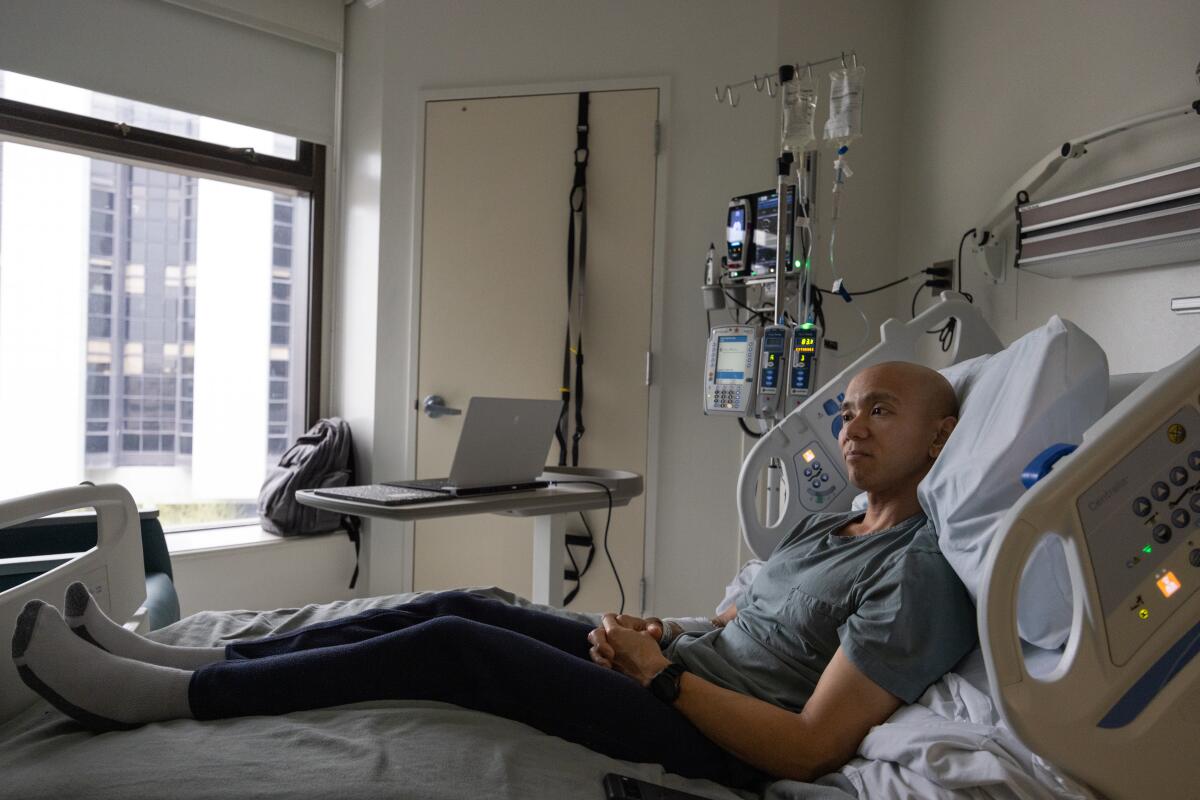
During his visa interviews with embassy officials, Talania was not provided an Ilocano interpreter. He wasn’t given the chance to explain why he made a seven-hour trip from his hometown in Vigan in the northern Philippines’ Ilocos region, or that he had a wife and children waiting for him at home. Talania is expected to arrive in California sometime in mid-February, and shortly after that Yu will go through with the transplant.
“He does speak English, and I’m not going to be drilling him like a conflict interviewer,” Yu said jokingly. “I’ll be a lot more patient, and the stakes will be a lot lower in our conversation.”
When the two cousins meet for the first time, Yu’s mother will be there to help translate. There will be a language barrier between the two cousins, but Yu is confident that Talania will understand how much his visit means.
More to Read
Sign up for Essential California
The most important California stories and recommendations in your inbox every morning.
You may occasionally receive promotional content from the Los Angeles Times.
